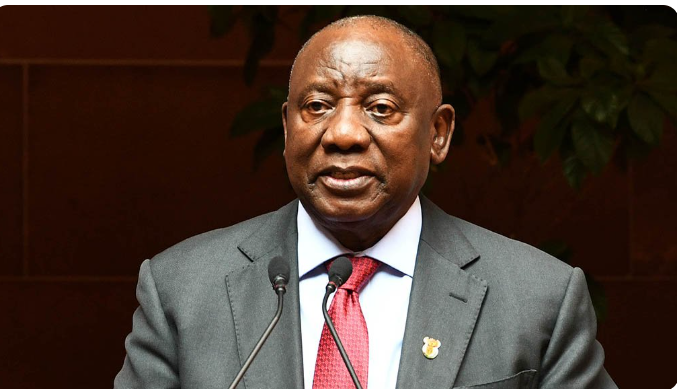
South African President Cyril Ramaphosa has expressed confidence in the resilience of his country’s relationship with the United States, even under the leadership of former President Donald Trump. Speaking at a press conference in Pretoria, Ramaphosa dismissed concerns about strained diplomatic ties during Trump’s tenure, emphasizing that the foundation of the partnership between the two nations remains strong and rooted in shared economic and political interests.
South Africa and the United States have always enjoyed a robust relationship based on mutual respect and cooperation. This is a partnership that transcends individual administrations and remains focused on common goals such as trade, investment, and regional stability, Ramaphosa stated.
The remarks follow speculation that Trump’s America First” policies and his administration’s stance on African nations may have cooled bilateral relations during his presidency. Critics often pointed to Trump’s controversial rhetoric about Africa, including reports of derogatory comments, as potentially damaging to U.S.-Africa relations. However, Ramaphosa emphasized that his government maintained open lines of communication with Washington throughout that period.
Leaders come and go, but the bonds between nations are enduring. Our engagement with the U.S. was consistent, focusing on advancing South Africa’s economic growth, addressing global challenges, and fostering cooperation on critical issues such as health and security, he said.
Under Trump, the United States continued to be a major trade partner for South Africa, with bilateral trade amounting to over $20 billion annually. Key sectors included mining, agriculture, and automotive exports. Despite concerns about potential policy shifts, programs such as the African Growth and Opportunity Act (AGOA) remained intact, offering duty-free access to the U.S. market for South African products.
Ramaphosa also highlighted collaboration in public health, particularly in combating HIV/AIDS through initiatives like the U.S. President’s Emergency Plan for AIDS Relief (PEPFAR), which has invested billions in South Africa’s healthcare sector.
However, analysts note that Trump’s approach to multilateralism, including his withdrawal from the Paris Climate Agreement and criticism of global institutions, created challenges for South Africa, which has been a vocal advocate for climate action and multilateral cooperation.
Ramaphosa acknowledged these differences but emphasized the importance of focusing on areas of agreement. While there were divergences in certain policies, we always sought to find common ground that benefits both nations, he said.
Looking ahead, Ramaphosa expressed optimism about the future of U.S.-South Africa relations, particularly under current U.S. President Joe Biden. He noted Biden’s commitment to re-engaging with Africa and fostering partnerships based on mutual respect and shared prosperity.
Our relationship with the U.S. is dynamic and forward-looking. As we address challenges like economic inequality, climate change, and global health crises, we welcome collaboration with the U.S. administration and the American people, Ramaphosa concluded.
The remarks underscore South Africa’s strategic approach to diplomacy, emphasizing stability and cooperation regardless of political changes in partner nations. As both countries navigate evolving global challenges, the enduring partnership between South Africa and the United States remains a cornerstone of their foreign policies.

